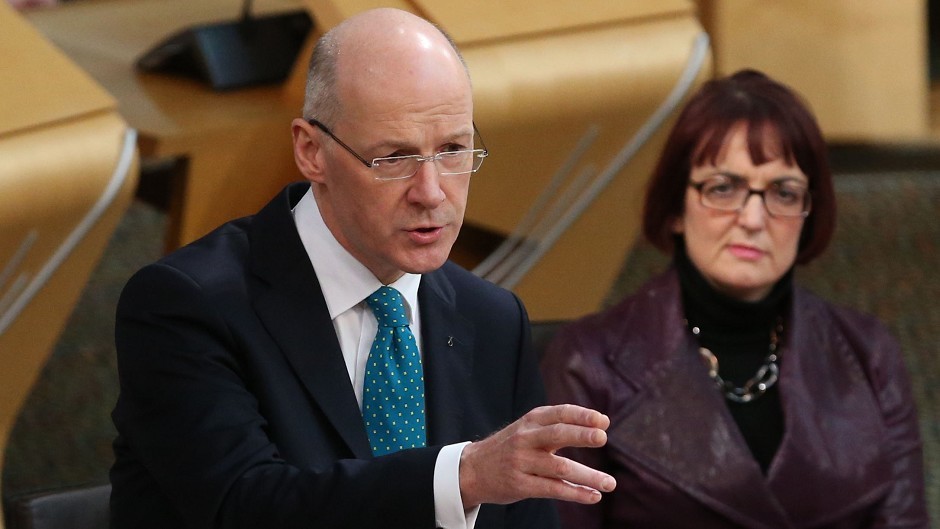Pressure is growing for a north-led rebellion against the SNP’s council tax freeze in order to save front-line services from severe budget cuts.
Highland Council chiefs say residents are increasingly urging their councillors to be first to break the so-called “accord” with the Scottish Government.
Deputy First Minister John Swinney said yesterday that it was up to individual councils to decide whether or not to break the freeze – but warned that in doing so they would lose the financial support provided to maintain the existing charge.
Mr Swinney was in Ullapool to chair a Scottish cabinet meeting as part of its summer tour of the nation, and discussed the north’s looming budget crisis in a private meeting with the authority’s minority administration leader Margaret Davidson.
Highland Council is currently grappling with a projected £46.3million, three-year budget gap, but the SNP election manifesto vows not to raise council tax for the duration of the current parliamentary term.
Asked if he was concerned about a possible revolt by councils who may now see no option but to break the agreement with the government, Mr Swinney said: “It is a matter for each local authority.
“Obviously, if a council decided to increase the council tax then they wouldn’t get access to the financial support that we put in place to keep the council tax frozen.”
Mrs Davidson said after the meeting with Mr Swinney: “I’m getting a very clear message from many in my community that they don’t want to lose services.
“The issue of the tax freeze is not on Mr Swinney’s radar for this year. But every local authority in Scotland has the autonomy to do what it wishes around council tax.
“We haven’t been doing it for seven years because we’ve been given money to compensate for not raising it.”
Mrs Davidson said much hinged on the outcome of a Commission for Local Taxation report in the autumn.
She foresees detailed discussions with counterparts across Scotland in order to “get a feel for where others are going on this.”
Mrs Davidson added: “Most councils believe it’s time to look at it again. Whether they’ll do it next year or whether it will be into the life of a new parliament, that is the question.”
Councillor Jimmy Gray, the leader of the Labour group, said he would support a 5% increase on council tax as a “reasonable” option.
He added: “We have held the council tax for eight years and we haven’t been getting compensation. They (the government) needed to make provision for inflation and that didn’t happen.
“People I speak to say that rather than lose services, there should be a reasonable increase. There are difficult decisions to be made.”
Eben Wilson, director of TaxpayerScotland, said: “It is a choice for councils but it is absolutely essential is that there is complete transparency about the consequences so that local people know the cost to them.”
The cabinet met in the Wester Ross village’s MacPhail Centre during the afternoon before a public meeting at which residents raised their own issues.
First Minister Nicola Sturgeon was not in attendance as she is on holiday.
